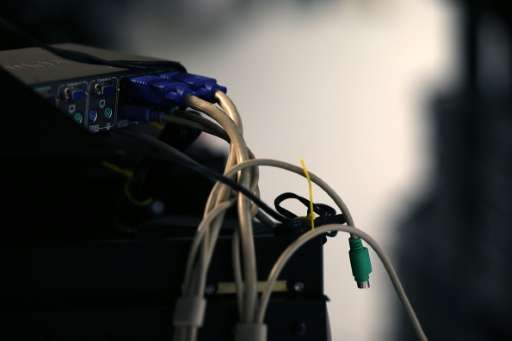A US regulator approved a plan on March 31, 2016 to provide subsidies to low-income Americans for high-speed Internet access, saying it would help close the "digital divide"
A US regulator Thursday approved a plan to provide subsidies to low-income Americans for high-speed Internet access, saying it would help close the "digital divide."
The Federal Communications Commission voted 3-2 to approve the plan, which revamps a program originally designed for telephone service that offers some $9 a month.
The FCC proposed the plan earlier this month to revise the "Lifeline" program from the 1980s, saying broadband access is essential for "full participation" in modern society.
Consumer organizations welcomed the FCC action.
"Lifeline has helped people who otherwise could not afford it obtain vital telecommunications services. Today's vote extends the program's monthly subsidy to at least partially cover broadband service in qualifying households," said Michael Copps, a former FCC commissioner who now advises the activist group Common Cause.
"This is a giant leap forward. It helps extend the awesome power of the Internet to those who need it most. School children, jobseekers, the elderly and infirm in particular will all benefit."
Phillip Berenbroick of the consumer group Public Knowledge said the new rules "will finally put the American dream of connection within reach for those struggling the most."
But the libertarian group TechFreedom said the FCC has not demonstrated it will curb fraud and abuse of the subsidy program.
TechFreedom president Berin Szoka said the program's funding from a tax on telecom services merely shifts the burden to middle-class families.
For those who qualify, he said that "if their income rises at all, they'll be ineligible for the program and suddenly have to pay not just the cost of the service, but a whopping 18 percent tax, too."
The FCC said the new plan establishes minimum standards for broadband and also will use a third party to verify eligibility in an effort to curb fraud.
It also aims to encourage a new category of "Lifeline" service providers with a streamlined entry procedure into new markets.
A separate action by the FCC calls for new privacy regulations to ensure consumers are aware of how much data is being collected on them by their Internet service providers.
© 2016 AFP






















